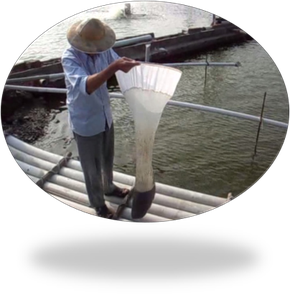AQuaBioS
The AQuaBioS project: the sea farm for organic and sustainable aquaculture
The project, coordinated by ISPRA and financed by the Italy-France Maritime cross-border cooperation program 2021-2027 for 36 months with a budget of over one million and 800,000 euros, contributes to the development of a sustainable aquaculture system through collaboration between research centers research and companies in the sector.
In fact, the University of Corsica, the French Oceanographic Institute Paul Ricard, the Agriculture Agency of the Sardinia Region, the Aqua Agricola company and the San Leopoldo cooperatives also participate in the AQuaBioS project activities, with the aim of strengthening the protection and conservation of nature and its biodiversity.
The use of natural products from the food chain helps to limit the environmental impact due to the dispersion of commercial feed and reduce the use of medicines. The project partners will experiment with cultivation and breeding methodologies along the entire production chain (feeding, reproduction and growth). In particular, new protocols and systems will be developed for the production of plankton and marine organisms to be used to feed alternative marine species to traditional production (e.g. croaker, sea urchin, milkfish, amberjack, mullet). The knowledge obtained will be transferred from the research centers to partner companies who will experiment with the use of plankton also to improve the composition of commercial feed and the quality of the product. The project will strengthen the competitiveness of the small and medium-sized enterprises that are part of the consortium and which will thus be able to benefit from the biotechnological innovations developed during the project and tested in pilot sites.
In the collaboration area of the European programme, marine protected areas and coastal areas with reduced productivity will also be able to benefit from organisms bred to restore biodiversity and contribute to improving the protection and conservation of the marine ecosystem, while research centres, universities and regional environmental protection agencies will take advantage of the model marine organisms produced by the project, for scientific, educational and environmental protection and monitoring purposes.
The role of ISPRA, in addition to that of coordinator and leader, will be focused on the development of plankton production plants, both in its own laboratories and in those of the partners involved, through the installation of external and internal systems suitable for the growth of marine organisms model with an innovative production cycle with lower environmental impact and lower costs.

